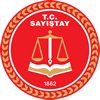ISTANBUL DECLARATION
Preamble
The theme of the Xth EUROSAI Congress was defined as “Implementation of ISSAIs; Challenges and Solutions”, since this represents a common challenging issue for all EUROSAI members.
Supreme Audit Institutions (SAIs), as independent oversight institutions, enhance transparency and accountability of government policies and foster the efficient and effective receipt and use of public resources. They have to carry out their important role by ensuring the highest audit quality. The path to achieving this is directly linked to the adoption and effective implementation of the generally accepted highest international standards, namely the International Standards of Supreme Audit Institutions (ISSAIs). However, this is a challenge, since each SAI has different national legislation, audit mandate, institutional structure and resources. Therefore, bearing in mind that ISSAIs are not just checklists or guides to show “how to”, SAIs should devote sufficient time and resources on the implementation to achieve the required high quality.
With regards to the inherent challenges and possible solutions, ISSAI implementation is a key of priority issue. To this end, Congress has witnessed a great enthusiasm of participants to exchange knowledge and experience and to propose solutions for the challenges they face. A large part of the added value of the Congress has come from SAIs participating in, and benefiting from 12 concurrent work sessions and seminars. This has ensured the discussion of topics both at strategic and technical levels. It has helped ensure the Congress was a beneficial brainstorming and result-oriented event.
The Congress provided an ideal demonstration of the benefits of open dialogue, which is a principle applied by the Turkish Court of Accounts and all other SAIs.
Whereas EUROSAI strives to be an agile and relevant Organisation in a changing environment, the conclusions and recommendations derived from the Congress will be a source of inspiration when implementing the plan for the new strategic period as well as the enhanced governance structure.
Conclusions and Recommendations
We, the members of the Xth EUROSAI Congress,
Evolving Role of SAIs
Considering that
• New and emerging global issues – such as the SDGs – create a new challenging agenda for SAIs and requiring to be more proactive in addressing them;
• ISSAIs are a valuable guide for SAIs to undertake high quality audit; and
• EUROSAI must continue to act as one of the most active regional organisations of INTOSAI.
Conclude that
• Effective implementation of ISSAIs should be a priority for EUROSAI members;
• Developing new audit tools is crucial for responding to society’s needs;
• ISSAIs should be applied by SAIs in line with their environment; and
• Sharing knowledge and experience between the EUROSAI members, and with other regional organisations is very important when responding to emerging issues.
Recommend that
• SAIs should continue to be agile and responsive;
• EUROSAI encourages INTOSAI to ensure that its Framework for Professional Pronouncements reacts effectively to emerging issues;
• EUROSAI should take account of INTOSAI’s approach to the SDGs;
• In order to make the most effective contribution to the SDGs, cooperative audits should be actively considered;
• EUROSAI should support the preparation of auditors for auditing the SDGs.
Inspiring Solutions for Further Improvement
Considering that the publication of audit findings is a challenging issue for SAIs, and often involves different practices, EUROSAI recommends that the key driver should be ensuring successful communication with stakeholders without compromising the independence.
Considering the challenges related to IT audit, EUROSAI recommends:
• Sharing and following good practices of IT audit and performance audit;
• Identifying all barriers to undertaking IT audits;
• Incorporating IT audit a key part of the strategy of the SAIs;
• Providing effective and awareness building on IT audit to staff.
Considering that SAIs have different organisational structures and mandates, EUROSAI concludes that ISSAIs in the field of performance audit provide a consistent framework and underlines that the effective application of the standards is likely to lead to higher quality content.
Considering that auditing the response to disasters has become an increasingly important issue for SAIs as well as for the international community, EUROSAI will explore how better to respond to increasing amounts of emergencies such as mass migrations and cyber-attacks.
Considering that we are surrounded by data and information, EUROSAI recommends SAIs to make best use of this data and information within their auditing processes including making use all available analytical tools and techniques.
Considering that one of the key aspects of the practical implementation of ISSAIs in the field of audit and ethics is education and training, EUROSAI concludes that is a long-term continuous process.
Considering that although digital revolution facilitates data gathering and enables quick analysis of large data sets instead of sampling, compiling data from different databases remains a challenge, EUROSAI recommends better preparation before audits and automatization of data harvesting.
Considering that SAI audit mandates differ between them, EUROSAI concludes that ISSAIs provide a common framework for financial audit and recommends that ISSAIs should be implemented as far as their national legal frameworks allow.
Considering that monitoring previous findings is an indispensable part of high quality audits and for demonstrating the impact and value added of the work of SAIs. EUROSAI recommends further strengthening this process.
Lastly, EUROSAI recognizes the importance of SAIs implementing the ISSAIs.
